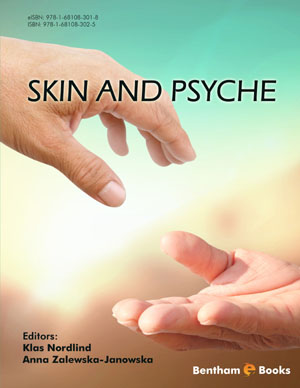Abstract
The impact of dermatological conditions on a patient's life is frequently underestimated. Patients with skin conditions experience several physical complaints, including itch, pain and fatigue. Furthermore, in comparison to the general population, patients report a decreased psychological well-being, lowered quality of life and feelings of stigmatization and shame. Psychological treatments are widely used in addition to regular dermatological treatments to improve physical and psychological functioning of patients with chronic skin conditions. These treatments are usually aimed at changing the psychosocial factors that can influence the onset and/or course of skin conditions, such as dysfunctional coping behaviors, itch-scratching problems and stress. There are unimodal interventions in which single treatments are used, for example psychoeducation or relaxation exercises, and multimodal treatments in which a variety of different interventions are applied based on cognitive-behavioral therapy and self-management principles. Furthermore, a distinction can be made between interventions that focus primarily on skin-related psychosocial problems, interventions that focus on itch-scratching problems, and interventions that are focused on psychiatric problems in the dermatological practice. This chapter gives an overview on the psychosocial factors relevant for dermatological conditions, relevant diagnostic methods and the content and scientific evidence of specific psychological treatments in these different categories.
Keywords: Cognitive-behavioral therapy, Dermatological conditions, Habit reversal, Itch-scratching problems, Psychological treatment, Stress management.






















